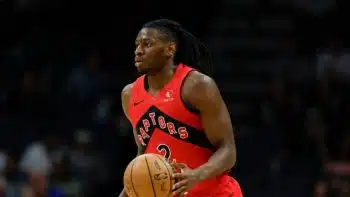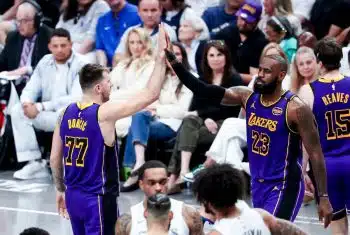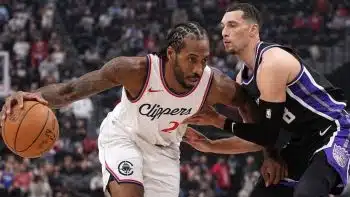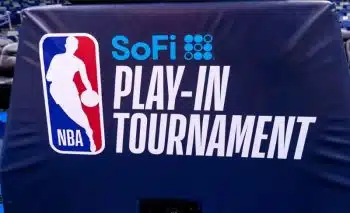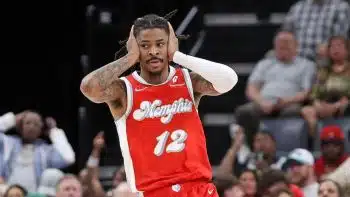NBA
Examining the NBA’s Formerly Secret Constitution
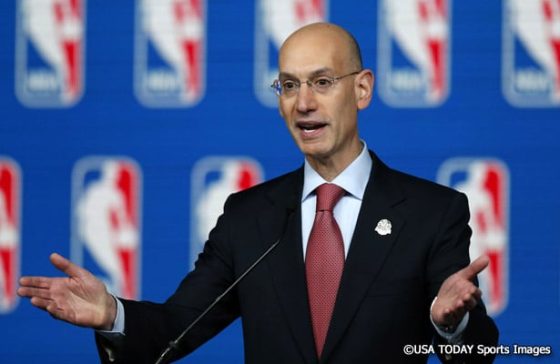
The Donald Sterling fiasco has shined an unexpectedly severe spotlight on a document most had never heard of until a few days ago. The NBA Constitution and By-Laws were secret league documents that suddenly captured the nation’s fascination since they governed the potential punishment of Sterling. These documents were kept so close to the vest that not even the players’ association appeared to know their full contents, as one of Kevin Johnson’s talking points on Sunday afternoon was a need to understand the full extent of the punishment the league could levy.
But as part of dealing with the Sterling situation and perhaps as part of a new era of transparency under Adam Silver, the league unexpectedly decided to release the entire Constitution and By-Laws on Tuesday. This was Christmas in April for CBA nerds for all the information it provided completely unrelated to the Sterling situation. Over the past 24 hours I conducted a quick review of the Constitution, and found a number of interesting provisions.
Want to Own an Expansion Team?
You’d better not have any skeletons in the closet, at least not these days. Under Article 4(a), Applying for “Membership” to own an expansion team essentially means that you have to furnish whatever information the Commissioner of the NBA requires. The relevant language:
Membership is “[t]he rights, privileges,and benefits granted to a Member by the Association, including, without limitation, the right to organize and operate a professional basketball team to play in the league operated by the Association.” The Commissioner can also direct any Prospective Owner to cause essentially any other party the Commissioner deems necessary to sign “such documents in such forms as the Commissioner shall prescribe.” These include “respective controlled subsidiaries and affiliates,” but presumably could also include the Prospective Owner’s family members or pretty much anyone else the Commissioner deems relevant.
The Commissioner then conducts an investigation of the Prospective Owner that he deems appropriate. After the investigation is concluded, the commissioner submits the application to the Governors of each franchise, and a three fourths vote is required to approve the Prospective Owner under Article 4(d).
Oh, and did we mention you need money to own an NBA team? A mere application to purchase an expansion team has to be “accompanied by a certified check in the amount of $1,000,000,” the “application fee.” This is used to pay for the NBA’s vetting process, with any amount remaining after that going toward the purchase price of the team.
What About Ownership Transfers?
The process is much the same. The Commissioner may make similar demands for information and document execution of any Prospective Owner for a “transfer of membership,” i.e. a sale of the team. That is governed by Article 5, and likewise requires the approval of three fourths of the Board of Governors. The denial of approval by the Board is what ultimately sunk the Maloofs’ attempt to sell to Chris Hansen’s Seattle group.
Then there is the provision that may ultimately sink Sterling: Article 5(c). That paragraph states:
Much as Sterling may complain about the unfairness of the Constitution, he and all other Owners agreed to be bound by it.
Sterling May Provide One Example on How to Lose a Team. What Are Some Others?
Under Article 13, the Membership of a Member (team) or the interest of any Owner may be terminated by a three fourths vote of the Board of Governors under quite a few circumstances. The most nebulous is if the Owner willfully violates “any of the provisions of the Constitution and By-Laws, resolutions, or agreements of the association,” per Article 13(a).
Another way to potentially lose a team is if the owner tries to sell the team or part of the team without complying with the provisions of the Constitution, which of course includes the three fourths vote. This is why an attempted transfer of ownership by Sterling to, say, a family member is unlikely. One of his best arguments to fight the sale of the team is that he never violated the constitution and that therefore the three fourths vote to remove him should not be allowed to happen, so he will want to make sure he avoids running afoul of it any further.
We also likely won’t see Sterling refuse to pay his fine, as failure to “pay any dues or other indebtedness owing to the Association within thirty days after Written Notice from the Commissioner of default in such payment” is also grounds for franchise termination, per Article 13(d).
Other grounds for termination* include betting on basketball, allowing gambling activity on owned premises, fixing games, disbanding the team, misrepresenting material facts during the ownership application process and failing to “present its Team at the time and place it is scheduled to play in an Exhibition, Regular Season, or Playoff Game.” The last of these might have been another way to oust Sterling if the Clippers’ players had in fact boycotted games. In fact, while a boycott would have been a black eye for the NBA, it might well have made excising Sterling from the league easier.
*Others have covered Article 13(d) in relation to Mr. Sterling, in which a termination vote may occur if the Owner “[f]ail(s) or refuse(s) to fulfill its contractual obligations to the Association, its Members, Players, or any other third party in such a way as to affect the Association or its Members adversely.”
What Happens After Termination?
Others have covered how the termination vote would occur. But what happens after that? “When the Membership of a Member is terminated, such Member and its assets, properties and operations shall be placed under the management and control of the Commissioner…,” who essentially takes the place of ownership, per Article 14A(a). These powers include “any management or voting rights” and the right to sell the team “at such prices and on such terms as the Commissioner shall deem reasonable and appropriate,” per Article 14A(b).
Who Gets the Money from a Sale by the Commissioner?
Mostly Donald Sterling, assuming the Clippers are in good financial health, as they are reported to be. The profits from the sale first go “discharge the liabilities and obligations to all creditors,” and second “any balance shall be remitted to the Member (or Owner).”
The Commissioner’s Powers
The Constitution provides the NBA Commissioner with extremely broad powers. A few of the more interesting:
- “The Commissioner shall have exclusive, full, complete, and final jurisdiction of any dispute involving two (2) or more Members of the Association,” per Article 24(f). This is why you will never see one NBA team sue another, which of course would be terrible for the league.
- Commissioner Silver is empowered to “incur any expense which, in his discretion, is necessary to conduct and transact the business of the Association…” However, that is limited to expenses that are similar to those incurred over the past five years. If they go beyond that, Silver needs approval from the Board of Governors, per Article 24 (g). Presumably, a major expansion of the NBA’s business such as its efforts in China or India would be subject to Board approval under this provision.
- The commissioner also can withhold any revenues due to a team if he determines that the team failed to discharge its financial obligations to the NBA or any other team. This is another reason that Owners always pay their fines.
- He can set the date and time of all games consistent with the availability of arenas, the league’s media contracts and “what in the Commissioner’s judgment are the best interests of all Teams involved.”
Distribution of Gate Receipts for Regular Season and Playoff Games
Owners are, of course, required to provide money to help keep the NBA itself running. This amount includes providing capital contributions to the NBA of six percent of all gate receipts from regular season games. Immediately after each regular season game, a team has to send the league a check for payment of the six percent.
For playoff games, that amount increases to 45 percent of gross gate receipts. That amount then contributes to the playoff pool for the players (with an equal share going to the team’s head coach), the travel costs of each team and the referee costs. The remainder is then split equally among the teams. This provision means that the profits for a team making the playoffs are quite a bit less than is commonly believed.
Game Fixing
The penalty for fixing games is extremely harsh. If the Commissioner finds that any person fixed or tried to fix games, he must ban him or her from the NBA for life. In other words, once that finding is made the league constitution requires that individual be banned. The relevant language:
Protesting Games
We have often heard of the idea of “protesting” the outcome of a game. Teams have 48 hours to protest the outcome of a regular season game (or until midnight of the last day of the regular season, whichever is earlier), and until midnight the day of the game to protest a playoff game.* Once a protest is received, the Commissioner immediately notifies the opposing team and each team has five days to present any relevant evidence. The Commissioner then decides the question within a further five days after receiving the evidence.
*Note that the applicable time zone is “the local time then current in the city in which the game was…played.”
Also, protesting cannot be done with complete capriciousness. The protesting team must pay a “Protest Fee” of $10,000, which is refunded if the protest is granted.
This is just a preliminary look at the Constitution, as there is of course much more to the 58-page Constitution and 20-page By-Laws. We will examine these more in the weeks to come.
